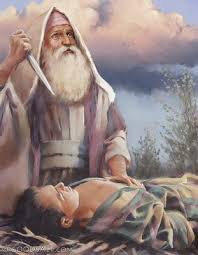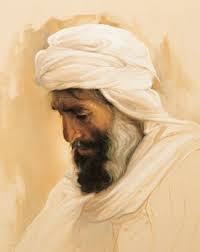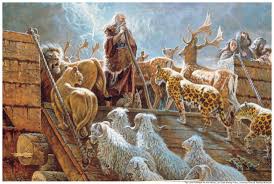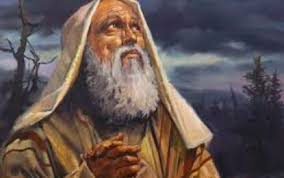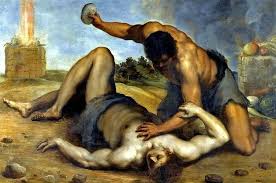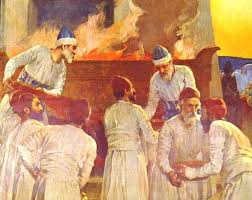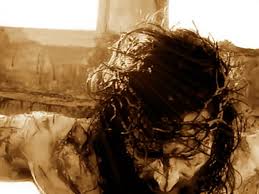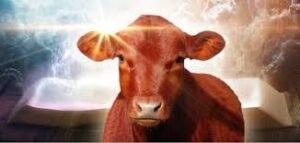Cr – The Faith of Jacob 11: 21
The Faith of Jacob
11: 21
The faith of Jacob DIG: Does it surprise you that Jacob is in the Hall of Faith? Why? Why not? How would you characterize Jacob’s faith throughout his lifetime? What were Jacob’s failures? Then why is Jacob in the Hall of Faith? How do we know that the blessings Jacob gave to his two adopted sons is an example of faith concerning future things?
REFLECT: Do you know anyone who is a righteous person that others think badly of? Who are some contemporary “heroes of faith” that encourage you today? What does it mean to you to have your sins forgotten as far as the east is from the west? What kind of blessings have you given to your children? How will you be remembered?
The Bible says that those who are righteous will live their lives by faith (Hebrews 10:38 CJB quoting Habakkuk 2:4 CJB). Therefore, many people don’t understand why Jacob would be included in the Hall of Faith. After all, wasn’t he a liar, a deceiver? Didn’t he steal the birthright from his brother Esau? Well . . . Jacob certainly wasn’t perfect, but in contrast to his brother, Jacob was a righteous man (Genesis 25:27). The NIV says Jacob was a quiet man, and the NKJ says he was a mild man. But the Hebrew word tam is always translated elsewhere as righteous, perfect, or upright, whole, complete, blameless or without blemish. For example, when speaking of Noah, the Bible says: Noah was a righteous (tam) man, blameless among the people of his time, and he walked with God (Genesis 6:9). ADONAI puts Jacob in the same company as Noah. And again, when the LORD was speaking to Satan He said: Have you considered my servant Job. There is no one like him; he is blameless and upright (tam), a man who fears God and shuns evil (Job 1:8). Again, ADONAI puts Jacob in the same company as Job. It does not mean sinless perfection, but it has the sense of righteousness, or a man whose heart is right towards God. As a result, the word tam is never translated quiet or mild anywhere else in the TaNaKh. Then why is it translated quiet or mild in most Bible translations? Not because it doesn’t make sense in the context, but because it does not fit people’s preconceived notions about Jacob. Here is the beginning of this trend that the way Jacob is portrayed by Scripture (tam) is the opposite of the way he has been portrayed by many pastors, commentators and even some Bible translators. This is a very dangerous proposition (Revelation 22:18-19).
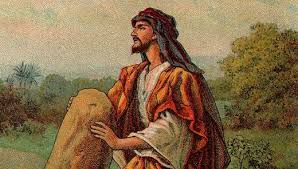
Therefore, because Jacob was a righteous man, he stayed among the tents of his father (Genesis 25:27). Regrettably, Jacob is often portrayed as a mama’s boy, but this is not what it means at all. Jacob chose the same occupation as his father, that of a shepherd and shepherds lived in tents. This was true of Abraham and it was true of his father Isaac. Being a shepherd was not the job of a sissy. The Bible tells us how much suffering Jacob had to endure as a result of being a shepherd. David would be a shepherd, and it was no easy task, protecting his flock from both the lion and the bear (First Samuel 17:34-37). Jacob chose to be a shepherd, and work within the family unit and within the covenant, in contrast to being a hunter and a man of the world like his brother Esau. Unfortunately, the parents mirrored the conflict between the twin boys.
Two unwise parents only added fuel to the fire of any potential problems that Esau and Jacob might have had with each other. Isaac, who had a taste for wild game, loved Esau. Literally, the Hebrew reads that Isaac had game in his mouth. Because Isaac had a preference for wild game, he had a preference for Esau. Not exactly a spiritual outlook, but then again Abraham wasn’t sinless and neither was his son. With the understanding that Rebekah told her husband the prophecy of the LORD when she was pregnant, Isaac basically ignored the choice of God. At some point it seems as though Rebekah had also told Jacob of his destiny. ADONAI said: Yet I have loved, or chosen, Jacob, but Esau I have hated, or not chosen (Malachi 1:2b-3a). She initially favored Jacob because she wanted to follow the LORD’s will. And because she believed ADONAI, she knew that Jacob was the son of promise and not Esau. As a result, she and Jacob became kindred spirits, and Rebekah loved Jacob because God loved Jacob (Genesis 25:28).
The passing over of the firstborn is one of the most striking features of Genesis. Five times this happened: (1) with Seth being chosen over Cain, (2) Shem being chosen over Japheth, (3) Abraham being chosen over Haran, (4) Isaac being chosen over Ishmael, (5) Jacob being chosen over Esau, (6) Joseph being chosen over Reuben, and now (7) Ephraim over Manasseh. Jacob gave the birthright to Joseph by changing the status of Ephraim and Manasseh from grandsons to sons.323 In this way, Joseph inherited a double portion of the inheritance because his sons would then be included as equals among the brothers.
As previously stated, Jacob was far from perfect, and was sometimes a neglectful father (see the commentary on Genesis, to see link click Ib – The Rape of Dinah). But in the final analysis, Jacob’s sins where forgotten by ADONAI just like Abraham and Isaacs’ sins. As far as the east is from the west, so far does He remove our sins from us (Psalm 103:12 GNT). This is a very comforting Scripture for the believers of all ages. It doesn’t mean that we are perfect, or make mistakes, but in the final analysis we are declared righteous by the Creator.
So by faith Jacob, when he was dying, blessed each of Joseph’s sons, and worshiped as he leaned on top of his staff (quoting Genesis 47:31). As he was dying in Egypt (see the commentary on Genesis Kz – Then Isra’el said to Joseph: I am About to Die, but God Will Be With You), Jacob blessed his son Joseph through his two sons Ephraim and Manasseh (see the commentary on Genesis Kx – Jacob Adopted Joseph’s Two Sons Ephraim and Manasseh). After receiving the oath from Joseph that he would be carried out of Egypt and buried with Abraham and Isaac, Jacob continued to be bedridden with a lot of time on his hands. Alone on his bed, he must have frequently reminisced, recalling the amazing events of his long walk with the LORD. One day, when Joseph came to visit him with his two Egyptian sons, God inspired Jacob to prophesy over them. This resulted in Jacob adopting Ephraim and Manasseh and elevating them to the status of full Israelite tribes along with Joseph’s other brothers. Therefore, there were fourteen tribes of Isra’el, although no more than twelve are listed at any one time in the Bible. As we shall see, the Ruach ha-Kodesh has a specific reason for choosing some and omitting others, but many times Ephraim and Manasseh are included in the place of Joseph.
Then Isra’el (Jacob’s new name, see the commentary on Genesis Hw – Jacob Wrestles with God) said to Joseph, “I am about to die, but God will be with you, and take you back to the Land of your fathers. And to you I give one more portion of land in Canaan than to your brothers” (Genesis 48:21-22a). Jacob believed that God was able to keep His promises, and he did not hesitate to give prophetic blessings to Ephraim and Manasseh. He worshiped as he leaned on top of his staff showing the weakness of his age. But he knew as he worshiped that in these blessing he was speaking the Word of God. As it was with Isaac, so it is with Jacob.324
This picture of Jacob worshiping (Greek: proskuneo, meaning to kiss the face) ADONAI as he leaned on top of his staff near the end of his life presents a beautiful picture of faith. It was fitting for Jacob to make this request in this way, for the staff was a sign of Jacob’s pilgrimage. It was characteristic for one who lived his life as a stranger and an alien. We see why the writer of Hebrews chose this passage to summarize Jacob’s life as a pilgrim believer who in the face of death, lays claim to the future through the exercise of faith.325



